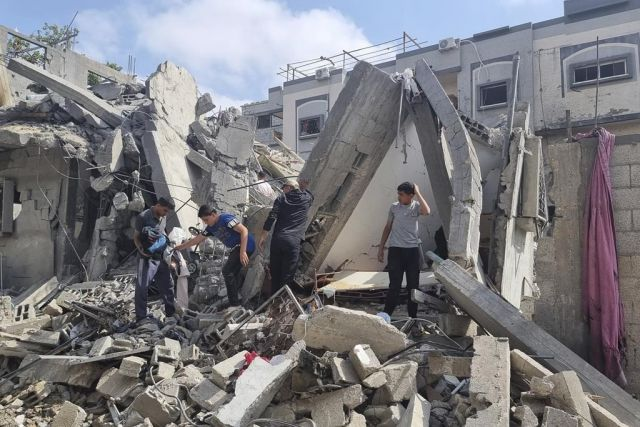Israeli Prime Minister Benjamin Netanyahu has issued a strong statement regarding the southern Gaza city of Rafah. Despite ongoing truce talks with Hamas, Netanyahu declared that Israel would launch an invasion of Rafah, regardless of any deal. The situation has escalated as attempts continue to reach an agreement for a ceasefire and the release of hostages.
The Stakes
More than half of Gaza’s 2.5 million population resides in Rafah, having fled there to escape fighting in other parts of the territory. Conditions in the overcrowded city are dire, with displaced people facing shortages of food, water, and medication. The West Bank-based Palestinian President Mahmoud Abbas has warned that an invasion of Rafah would be the “biggest catastrophe in the Palestinian people’s history.”
International Pressure
The United States has also weighed in on the situation. President Joe Biden reiterated his stance against a Rafah invasion unless civilians were properly protected. He previously described such an invasion as a “red line.” Meanwhile, indirect talks between Hamas and Israel have reached an impasse, despite efforts by U.S. Secretary of State Antony Blinken to encourage a truce.
Netanyahu’s Determination
Netanyahu remains resolute. He stated that the war would continue until Israel achieved all its objectives in Rafah. “The idea that we will halt the war before achieving all of its goals is out of the question,” he asserted. “We will enter Rafah and eliminate the Hamas battalions there with or without a deal.”
The families of hostages, who have been kidnapped by Hamas during the conflict, urged Netanyahu and his national security adviser to continue the war, disregarding mounting international pressure. While some hostages have been released or rescued, over 130 remain unaccounted for.
A Looming Crisis
Philippe Lazzarini, head of the UN’s refugee organization, warned that the looming invasion was causing people in Rafah to live in a state of “constant traumatic stress disorder.” The possibility of evacuation hangs in the balance, contingent on whether a deal can be reached this week.
In this tense situation, Netanyahu’s unwavering determination underscores the gravity of the conflict and its impact on civilians caught in the crossfire.




Comments
Post a Comment